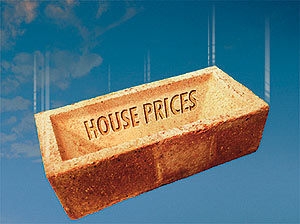 I’ve been planning for 2016 and trying to forecast what will happen to interest rates and house prices. 2015 was an extraordinary year for the private rented sector. According to NLA research landlord confidence in the future of their business has fallen to the same low point it hit in the credit crunch. George Osborne’s surprise colonisation of government housing policy resulted in the reduction of mortgage interest relief, abolition of the 10% wear and tear allowance on furnished properties and increased taxes on dividends. The cherry on the cake in the Autumn statement was a 3% stamp duty surcharge on purchases of additional properties. No wonder 15% of landlords are considering selling some of their properties in the next 12 months, most of them with larger portfolios.
I’ve been planning for 2016 and trying to forecast what will happen to interest rates and house prices. 2015 was an extraordinary year for the private rented sector. According to NLA research landlord confidence in the future of their business has fallen to the same low point it hit in the credit crunch. George Osborne’s surprise colonisation of government housing policy resulted in the reduction of mortgage interest relief, abolition of the 10% wear and tear allowance on furnished properties and increased taxes on dividends. The cherry on the cake in the Autumn statement was a 3% stamp duty surcharge on purchases of additional properties. No wonder 15% of landlords are considering selling some of their properties in the next 12 months, most of them with larger portfolios.
Many anticipated a surge in activity just before 1 April 2016, when stamp duty changes take effect. I am selling a flat in the East Midlands and accepted an offer last week from a landlord who wants to complete before the deadline. But with just over two months to go, there is barely time to complete transactions in time. March is likely to be a good month for conveyancing solicitors. The big question is what impact will these tax changes have on the property market after April?
Let’s take a look at what’s happening in Prime Central London. According to Savills, prices were up by 0.5% which says Halifax plc, compares with 9.5% nationally and 12% in Greater London overall. Interestingly, properties between £2m and £3m were down by 0.2% and 1.3% lower between £3m and £5m. A number of factors have been subduing prices, namely SDLT changes from Autumn 2014 which hiked the amount of tax paid on properties over £1m, with those over £2m particularly hard hit. International buyers, already deterred by steep prices gains, have also been subject to Capital Gains Tax since April 2015. Tax planning options involving limited companies based for example in in the British Virgin Islands have ceased to be effective as the Chancellor has introduced an additional charge for properties owned in this way. All this had a serious impact on sales volumes in Central London during 2015. According to Estate agent, Portico, volumes dropped by about 25% across Greater London as a whole, but in Central London volumes have halved. That halving of volumes mirrors the circumstances of the 2007/8 crash, when sales volumes dropped by 50% between July 2007 and January 2008. Prices started to decrease when volumes halved. The argument many make about price stability in London is that the housing shortage continues to stoke demand, but we have never experienced a period where owning property as a landlord will be as tax inefficient as the chancellor proposes. If landlords stop buying and start to sell, we could see a fragile market tip into descent.
Whither interest rates? Most commentators think they will start rising in small increments between Autumn 2016 and Spring 2017. Falling oil and energy prices are creating downward pressure on inflation, the Eurozone economy is still harbouring significant weaknesses, whilst concerns about Chinese and emerging economies weigh heavily on global economic expectations. I am firmly in the Spring 2017 camp. The government has pinned its hopes on first time buyers taking up any slack in the market left by landlords, but I think fear of interest rate rises and the sheer difficulty of getting loans since the mortgage market review will result in a trickle rather than a torrent. Prices softening in prime central London is often a precursor to price falls in Greater London and the rest of the UK.
Most estate agents continue to predict rises over the next few years: Savills predicts more than 20% growth over 5 years in most of London. It is in their interests to talk the market up. Many argue that the 3% stamp duty surcharge will only make a small dent in 20% capital growth over 5 years, but that assumes that these levels of capital growth will continue. If you are buying to sell, any additional cash required up front is a risk, especially if you are buying into an uncertain market, as you have no assurances that you will make enough profit when you sell to make the deal worthwhile.
I am glad I am selling my flat in the East Midlands now as it feels like a good time to sell. As I refinance three properties I remain uncertain whether to withdraw equity so that I am ready for my next purchase. The cost of finance will be less tax efficient in future and I’m not confident that later in 2016 will be a good time to buy. Better to stand back and watch – and maybe pick up a bargain in the next year or two to come.








